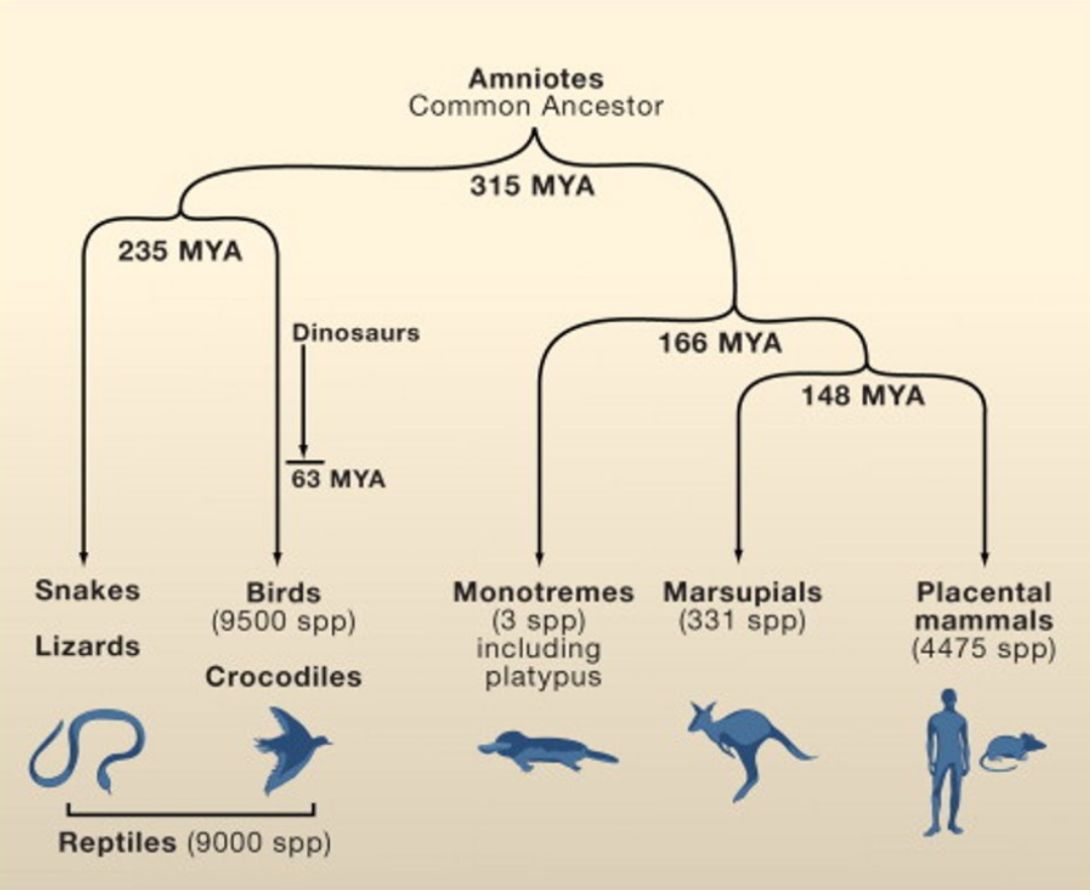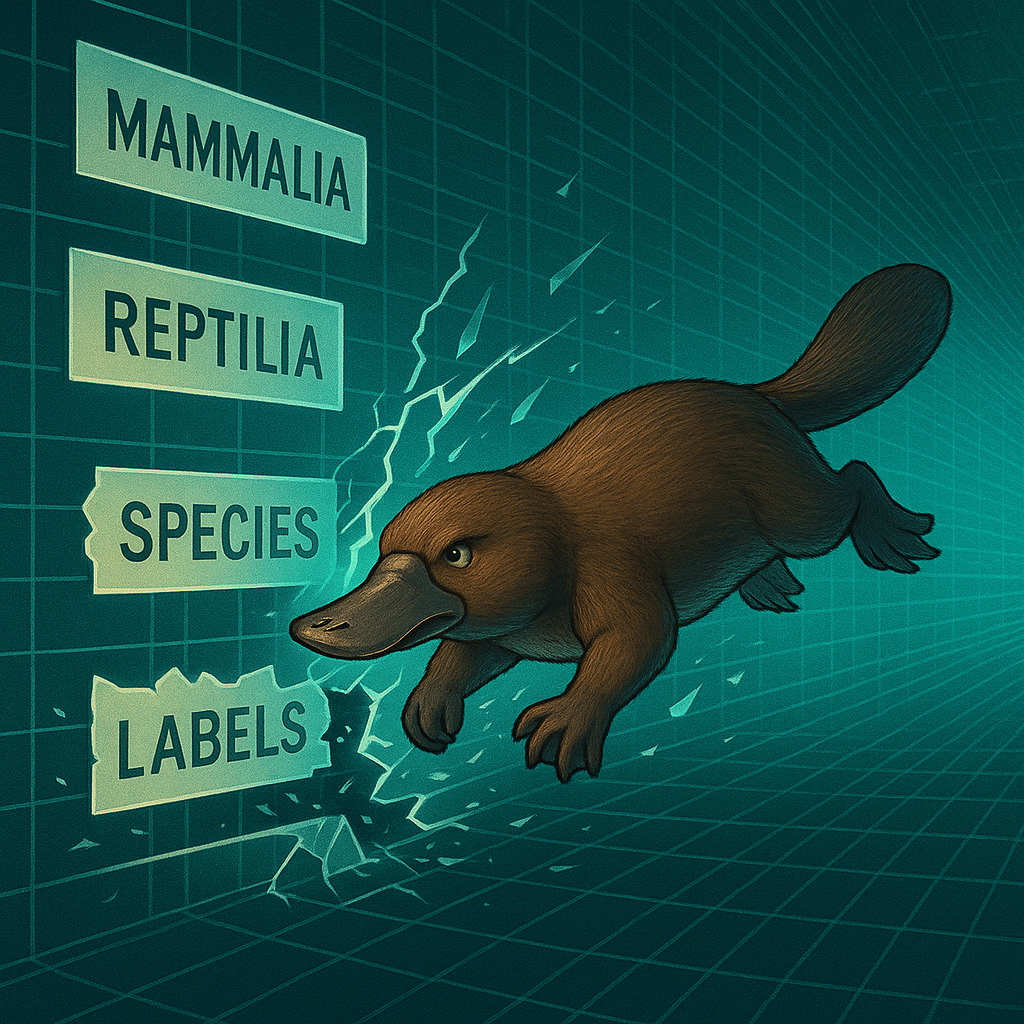What the Platypus Taught Me
The world loves boxes.
Categories. Roles. Labels.
We use them to navigate. To judge. To explain.
They give us a sense of order in a chaotic world.
But what happens when you don't fit in one?
The Platypus Problem

The creature that broke taxonomy before it broke the internet.
When British scientists first encountered the platypus, they thought it was a hoax. Literally. They sliced into its pelt, searching for seams. A duck bill. A beaver tail. Webbed feet. Venom. Milk but no nipples. It laid eggs! It made no sense.
And yet, it was real.
The platypus wasn't violating nature. It was violating our categories.
And those categories? Most of them trace back to Latin.
- Mammalia comes from mamma, meaning “breast”.
- Reptilia comes from reptilis, meaning “creeping”.
- Species comes from specere, “to look” or “to appear".
These aren't sacred truths. They're surface observations dressed up as structure.
Our labels are often just guesses we learned to say with authority.
Who Built These Boxes?

We act like categories are fixed.
But most are just scaffolding that helped someone feel safe.
- "Mammal" once meant live birth, until the platypus arrived
- "Masculine" once meant stoic endurance, until silence started to cost too much.
- "Success" once meant following the script, until the script stopped working.
The map was never the territory.
We just mistook the map for the ground beneath us.
Systems simplify in order to survive.
We see it everywhere in our modern world:
- A school system flattens students into grades and test scores. It's easier to sort numbers than nurture minds.
- A job market filters people through resumes and titles. There's no column for curiosity or chaos that leads somewhere new.
- A government collapses identity into checkboxes. It needs clean data, even if your life is anything but.
- A language model learns from human voices, then slices them into math. It doesn't understand - it just stitches patterns that sound like truth.
The Platypus Doesn't Pick a Side
It doesn't perform for acceptance.
It doesn't ask for clarification.
It just exists. Ancient, strange, complete.
And science had to catch up.
That's the move. Stop bending yourself into shapes that weren't made with you in mind.
You Were Never the Exception

When the world can't categorize you, it tries to correct you.
But the error isn't in you. It's in the model.
You were not born to be legible. You were born to be true.
Some people slip easily into the system. Others exist to show that the system was incomplete.
Why This Matters to Me
I've spent most of my life refusing categories that never asked what I carried.
Too technical for poets.
Too abstract for coders.
Too spiritual for logic-driven people.
Too logical for the spiritually in-tune.
But I kept building anyway. Games. Systems. Stories. Essays like this one.
Not because I needed approval. Because this is the shape I came in. 🟣
This blog isn’t a guide for fitting in. It’s a record of living as something that doesn’t.
If you've ever felt out of place, too blended, too undefined, you're not broken.
You're a platypus
And this space is yours.
You weren't made to fit in boxes. You were made to reveal how small they always were.
Welcome

